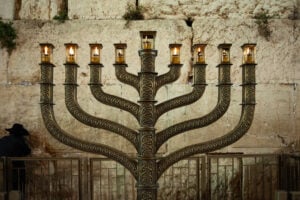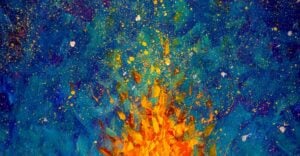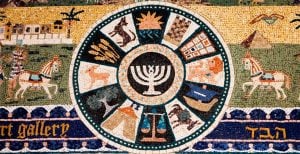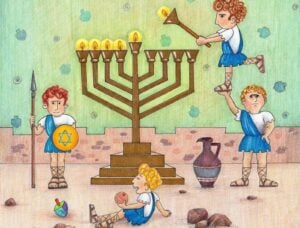 YOM HA’ATZMAUT, a.k.a. Israeli Independence Day, celebrates the anniversary of the creation of Israel on May 14, 1948 (the 5th of Iyar in 5708). On that day, David Ben Gurion, Israel’s soon to be first Prime Minister, declared the establishment of the State of Israel and the end of the British Mandate. From then on, this day has been national holiday, celebrated both in Israel and around the world.
YOM HA’ATZMAUT, a.k.a. Israeli Independence Day, celebrates the anniversary of the creation of Israel on May 14, 1948 (the 5th of Iyar in 5708). On that day, David Ben Gurion, Israel’s soon to be first Prime Minister, declared the establishment of the State of Israel and the end of the British Mandate. From then on, this day has been national holiday, celebrated both in Israel and around the world.
One unique aspect of Israeli’s Independence Day is that it is always immediately preceded by Yom Hazikaron, the country’s memorial day for its fallen soldiers. The message of linking these two days is clear: Israel owes its independence, its very existence, to the soldiers who sacrificed their lives for it.
The symbolic transition from Yom Hazikaron to Yom Ha’atzmaut takes place immediately after sundown, with a ceremony at Jerusalem’s Mount Herzl military cemetery in which the national flag is raised from half staff to the top of the pole, while soldiers representing all the various branches and units of the Israel Defense Forces parade with their flags. This ceremony is followed by a ceremonial lighting of twelve torches which symbolizes the twelve tribes of Israel by twelve citizens, poetically marking the country’s achievements in all areas of society.
Yom Ha’atzmaut in Israel is an official formal holiday celebrated in a variety of ways. In the major cities, such as Jerusalem and Tel Aviv, nighttime festivities erupt in the streets where crowds gather to celebrate, and public shows are offered for free by the municipalities and the government. The following day, thousands of Israeli families flock to nature and parks to stake out spots for picnics, while other special events take place across Israel, including parades, a famous International Bible Competition, and the ceremony for the Israel Prize, one of Israel’s highest honors.
The actual religious meaning of Yom Ha’atzmaut remains a subject of much debate in the Jewish world. Various influential authorities decided that this day should be treated similar to other traditional, joyous Jewish holidays, with the reading of Hallel and a special Haftarah (prophetic portion). However, many others, in Israel and abroad, have not accepted this ruling.
Today, no matter how one chooses to acknowledge and celebrate this day, for Jews in Israel and around the world, Yom Ha’atzmaut is an annual celebration of the Jewish connection to the Land of Israel, brought to life once again, an ancient dream finally come true.






